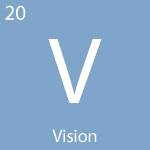
Everything I do is based on the notion that effective leadership makes a profound difference in the health and performance of any organization. In fact, my bias is leadership is the single most important variable when it comes to differentiating average organizations from outstanding ones. Whether it’s a $25B public company, a world class private equity fund, a $2M non-profit or a blue chip strategy consulting firm, they all share the same fundamental needs: a compelling and motivating purpose, clarity of direction, alignment of priorities, and accountability for results – this is the work of leaders. It is how they perform these roles that provide the rich arena for feedback, challenge, support, and development.

It is not enough to simply go through the motions and “play the role” – there is a raw and authentic aspect of leadership that has to do with appealing to both the hearts and minds of those being led. While many leaders are good at appealing to “the minds” (think reason, logic, and transactions), it is the leaders who can also appeal to the heart (think inspiration, motivation and discretionary effort) that can take a good organization and make it great.

Most people assume leaders are finished products – that by definition they no longer need to grow and develop because they have attained the title. In fact, the opposite is true for three simple reasons: 1) individual performance feedback at the top is rarely honest, direct, frequent, or useful; 2) it is easy for self-image to get distorted in an atmosphere where personal agendas are influenced by position, authority, and personal ambition; and 3) absolute power corrupts absolutely – it is the rare individual indeed who can maintain his or her inner-gyroscope when surrounded by wealth, power and people willing to do anything for them.

One could debate all day long the personal qualities and traits required of competent leaders, but most would agree they need to be smart, ethical, curious, insightful, and disciplined – the rest is as varied and idiosyncratic as human beings can be (which is why the work of developing leadership competence is so much fun – there are many roads to Rome). The most important metric is this: results. Can they rally, focus, and get the most out of those who follow them?

Can anyone be a leader? No. While lots of less-than-competent individuals are able to maneuver their way into leadership roles (and regularly do), those who emerge as truly effective are distinct in many consistent ways, e.g., they put the common good ahead of their own; they have a relentless work-ethic; they are exceptionally skilled at getting stuff done; they are lay-psychologists in that they are intrigued with what makes people tick and how to motivate them; they are interpersonally skilled and they listen—a lot.

So how do you develop leaders and leadership skill? By creating feedback loops that facilitate an honest, accurate and meaningful mirror of performance. This becomes especially complex with C-level leaders for the reasons described above. As you make your way through this website, the common themes you will see relate to a) raising awareness, b) challenging assumptions, and c) creating a dialogue that generates new insight and leads to higher levels of personal performance.
